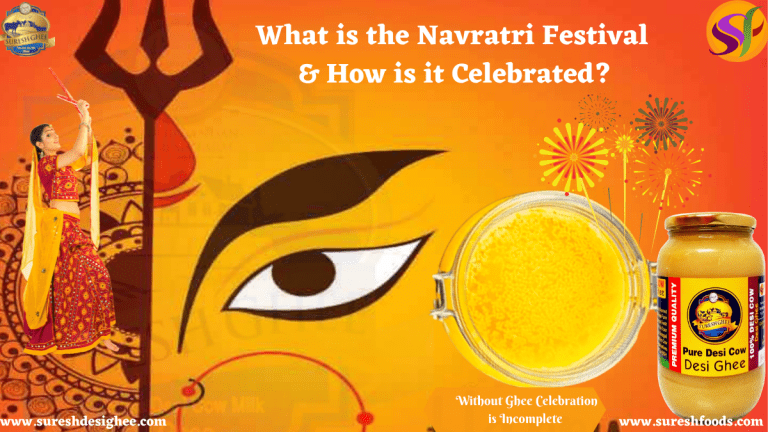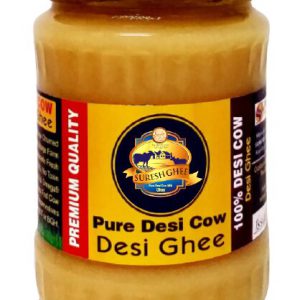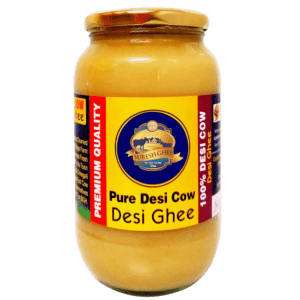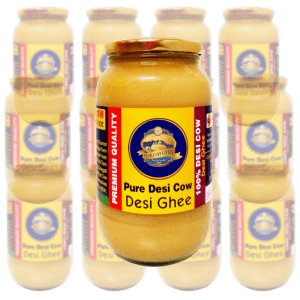One of the significant features of the Hindu religion – a religion that celebrates numerous festivals. Festivity is a culture followed by people from long ago. Behind this, there are spiritual and mythological reasons that exist. At this juncture of seasonal change, Maa Durga flings the work of creativity, preservation, and destruction. People respect goddess Durga with full fidelity to seek the blessings of their lives and happiness, joy, and prosperity.
How is Navratri celebrated for nine days?
We adore different forms of goddess Durga on Navratri with full adherence and devotion. Navratri respects the three important aspects of the Mother Goddess Durga in the profile of Kali, Lakshmi, and Saraswati.
On the first three days, the Goddess is honored in the appearance of Kali who is the diminisher of all our soul’s impurities.
In the next three days, we worship Goddess Durga in the semblance of Lakshmi who is recognized as the donor of everlasting wealth.
In the last three days, the Goddess is adored in the embodiment of Saraswati, the symbol of scholars and intellectuals.
Read more: How desi ghee helps in everyday health problems
The eighth day of the festival is traditionally celebrated as “Ashtami” and the ninth day is called “Maha Navmi” and also recognized as “Ram Navmi”.
During the Navratri festival, people admire all nine avatars of the goddess Durga. The nine avatars or forms of Mother Durga are formed as goddess Shailputri, goddess Brahmacharini, goddess Chandraghanta, goddess Kushmanda, Skanda Mata, goddess Katyayani, goddess Kalratri, goddess Gauri, and Mata Siddhidatri.
- Mata Shailputri is honored on the first day of Navratri.
- Maa Brahmacharini is adored on the second of Navratri.
- Mata Chandraghanta devotes to the third of Navratri.
- Maa Kushmanda is celebrated on the fourth day of Navratri.
- Mother Skanda is devoted to the fifth day of the festival.
- Maa Katyayani is worshipped on the sixth day of the festival.
- Mata Kalratri is honored on the seventh day of Navratri.
- Maa Maha Gauri is praying on the eighth day of Navratri.
- Mata Siddhidatri is extolled on the ninth day of Navratri.
In some parts, Dussehra is also celebrated on the last 10th day after Navratri, and the whole 10-day solution is known by the name Dussehra. Dussehra is a time to memorialize the victory of good over evil, such as Durga’s triumph over Mahishasura. In some regions of India, Dussehra relates with the triumph of the god Rama over the evil king Ravana. In North India, the Ram Lila (“Play of RamFa”) is the main event of the festival.
Desi cow ghee is another incredible part of the celebration:
Celebration of the nine days of Navratri, when small havans are performed at home and it will destroy the impurities from the house. In the older rituals of holy fires on a micro-scale, desi cow ghee is an ingredient that is much preferred for yagnas as it spreads a nice aroma and purifies the atmosphere.
Ghee is used to mending the fire, and to proffer sweets to the gods, where you immerse the two cloves in desi ghee and allow them to sputter in the fire, are meant to be exactly that spreading positivity and purifying the environment or diminish our bad spirits in it. There are a lot of “fasting foods” related to the Navratri but one necessary thing that usually gets missed when we are enjoying the ritualistic fare is grass-fed cow ghee. Pure ghee, of course, is an essential ingredient to cooking and adds its importance in rituals.
Desi ghee is the ingredient without which the final prasadam of Navratri pooja like halwa, poori, sago khichdi, offered to the goddess is meant to be incomplete or cannot be allowed to cook at all. Also for celebrating the festival traditionally, use desi cow ghee for lighting lamps instead of refined oils.
Read More: Why is Desi Ghee preferred over oil for diyas during Pooja?
Desi cow ghee regulates the acid reflux during fasting:
Fasting with the incorrect methods can lead to heartburn problems. The functioning of the digestive tract is such that the stomach will liberate the acid which digests food and diminishes bacteria. Now, while fasting, insufficient food intake causes a less quantity of stomach acids. And in this scenario, just even smelling food can activate the brain and stomach to generate more acid that can cause GERD flux issues.
Many people have a condition of regular heartburn or gastroesophageal reflux issues(GERD). They must indulge in ghee as a cooking medium and as a topping on food and ward off their worry and get ready for fasting.
Ghee is an incredibly essential ingredient for a healthy body. Pure desi ghee is made from cow’s milk, not only does ghee promote the flavor of food, but also it stimulates your delicious dishes into a balanced unit. Ghee can be loaded with vitamin A, E, D, and K and it can act as medicine for many health problems. Pure desi ghee is useful to your health as it fetches loads of fats that offer more energy to your body. A healthy person can consume one to three spoonfuls of pure ghee per day. To buy pure desi ghee online made by the wooden hand-churned bilona process, please visit our website: https://sureshdesighee.com/
Significance of Navratri festival
India is recognized as the land of colorful festivals across the globe. Here, religion and devotion to gods are an indivisible part of sociality as well as spirituality. Behind the celebration of festivals, there is one deep reason and meaning attached to it. The celebration of festivals promotes cheerful joys but the core is to implant the conventional values in one form from the other. Navratri is one of the most acknowledged Hindu festivals, people worship the Goddess Durga as she blessed us with immense positive energy. Each of the nine days of Navratri is dedicated to worship the various forms of the Mother Goddess.
FAQ
Ghee finds its place in the preparation of prasad and various delicacies during Navratri due to its exceptional aroma and rich flavor profile. Cow ghee, in particular, serves as a replacement for fats, aiding in the elimination of toxins from the body through a cleansing process. Additionally, it contributes to enhancing internal health and boosting overall immunity. Cow ghee exhibits a high smoke point, making it suitable for various cooking methods such as deep-frying, sautéing, and crafting diverse food offerings. Its compatibility with a wide range of spices further enhances its versatility in Navratri cuisine.
During the time of Navratri fasting, which is a time for cleansing the body of toxins and receiving the blessings of Maa Durga, using ghee into your meals can have multiple benefits. If you choose for a once-a-day meal, dishes made with ghee can deliver sustained satiety, helping you remain fuller for a longer duration. Ghee also delivers an important role in maintaining a balance of excessive stomach acid that may be generated during fasting. Furthermore, it serves as an imperative source of energy to support you during such periods of spiritual observance.
Grains and Lentils: Navratri fasting traditions discourage the intake of grains that are wheat, rice, and oats, as well as lentils such as dal, chickpeas, and kidney beans.
Non-Vegetarian Fare: Non-vegetarian foods, involving meat, fish, and eggs, are strictly prohibited at the time of Navratri fasts.
Certain Vegetables and Spices: Some individuals also opt to restarin from certain vegetables like onion, garlic, and ginger, along with particular spices that are turmeric, cumin, and mustard.
In conclusion, Navratri fasting possesses significant importance in Hindu culture, and observing it with devotion and discipline can harness spiritual benefits. Complying to fasting rules and resisting restricted foods not only pays homage to the deities but also contributes to maintaining overall health and well-being.
Conclusion:
The prayer, God songs (Bhajans), and meditation done in Navratri give us a positive spirit that adduces positive aura within us and diminish laziness, pride, obsession, jealousy, and hate. Stress in the form of negative thoughts, worship of goddess keeps you calm and experiences the deep peace of this nine nights celebration. By reading the above lines you will understand more about the importance of Navratri. Celebration rituals for Navratri varies from places and communities but the devotion and faith is pure for goddess durga.







 WhatsApp us
WhatsApp us
Naveen m...